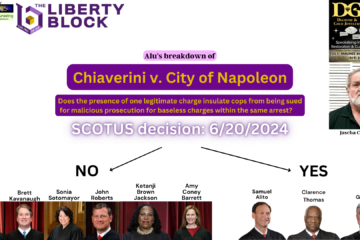This piece was published on ConnerDrigotas.com
As COVID-19 worsens, restaurants (and small businesses) everywhere have been placed on the chopping block. State and local governments across the country are closing restaurants by executive order or limiting their hours of operation with red tape. As some lay off staff and close their doors, restaurateurs and business owners should take advantage of their adaptability as members of the private sector and find creative solutions to stay afloat.
But most importantly, officials desperately need to realize that private business will be the most effective agents to help us through this crisis.
Take the restaurant Canlis in Seattle, Washington for instance. For almost 70 years, Seattlites have flocked to Canlis, largely regarded as one of the best high-end, fine-dining establishments in America. Facing forced closure by state bureaucrats, brothers Mark and Brian Canlis got creative. As of Monday, they closed their main dining room and are offering three meals a day via drive thru or delivery. They are keeping their staff employed, and continuing to provide an important service to the community.
Of course, private businesses across all industries are often better prepared to handle crises than the government. As states and the federal government struggle to procure even basic COVID-19 test kits, the private industry is stepping up to the task. As the old saying goes: the market provides.
Business owners are often attacked for generating profits, especially in times of crisis, but that profit incentive allows for new ideas and creative solutions to develop and flourish. While government programs falter, businesses and business owners consistently succeed in making our lives better.
Contrary to capitalists’ detractors, making money and achieving a socially desirable good aren’t mutually exclusive. In fact, earning massive wealth is what allows a great deal of social good to occur. For instance, combined, Jeff Bezos and Bill Gates have donated more than $43 billion to philanthropic causes. More importantly, the businesses they created have improved the lives of millions in countless ways.
From same-day delivery to the personal computer, these executives and their companies have married doing good with doing well.
This mutually beneficial approach to business was codified in Harvard Business Professor Michael Porter’s theory of “Creating Shared Value.” Private industry is uniquely able to provide what people want and what the world needs. And as government officials continue to debate about the best way to handle COVID-19, entrepreneurs are already at work providing solutions to improve people’s lives. Microsoft, for example, has launched a COVID-19 tracking website with local news tie-ins to help keep the public informed. And Amazon announced plans to hire another 100,000 employees and provide raises as well, in a time where many are facing layoffs and unemployment.
So it goes, elected officials often create the biggest barriers to these desperately needed solutions. Governments are slow and inefficient. Speed and agility are especially important during times of crisis, and the government simply can’t keep up. In everyday life, bureaucratic red tape often acts as an impediment to helping our friends and neighbors. We don’t need even more government intrusion as a result of this pandemic. Indeed, in a world where it’s a crime to feed the homeless, we instead need fewer laws and more business solutions.
When the COVID-19 pandemic calms down, restaurants like Canlis will go back to business-as-usual. They may even raise their prices to make up for lost revenues. That doesn’t make them the bad guys. They were here for us, and for their employees, when needed the most. So was Amazon, so was Microsoft, and so were hundreds and thousands of other businesses and business owners.
So the next time you hear a call for higher taxes, red tape, and additional restrictive laws, think twice before supporting those measures. Remember that these businesses who provide so much, during and outside a pandemic, are being put directly in the crosshairs.
This piece was published on ConnerDrigotas.com


